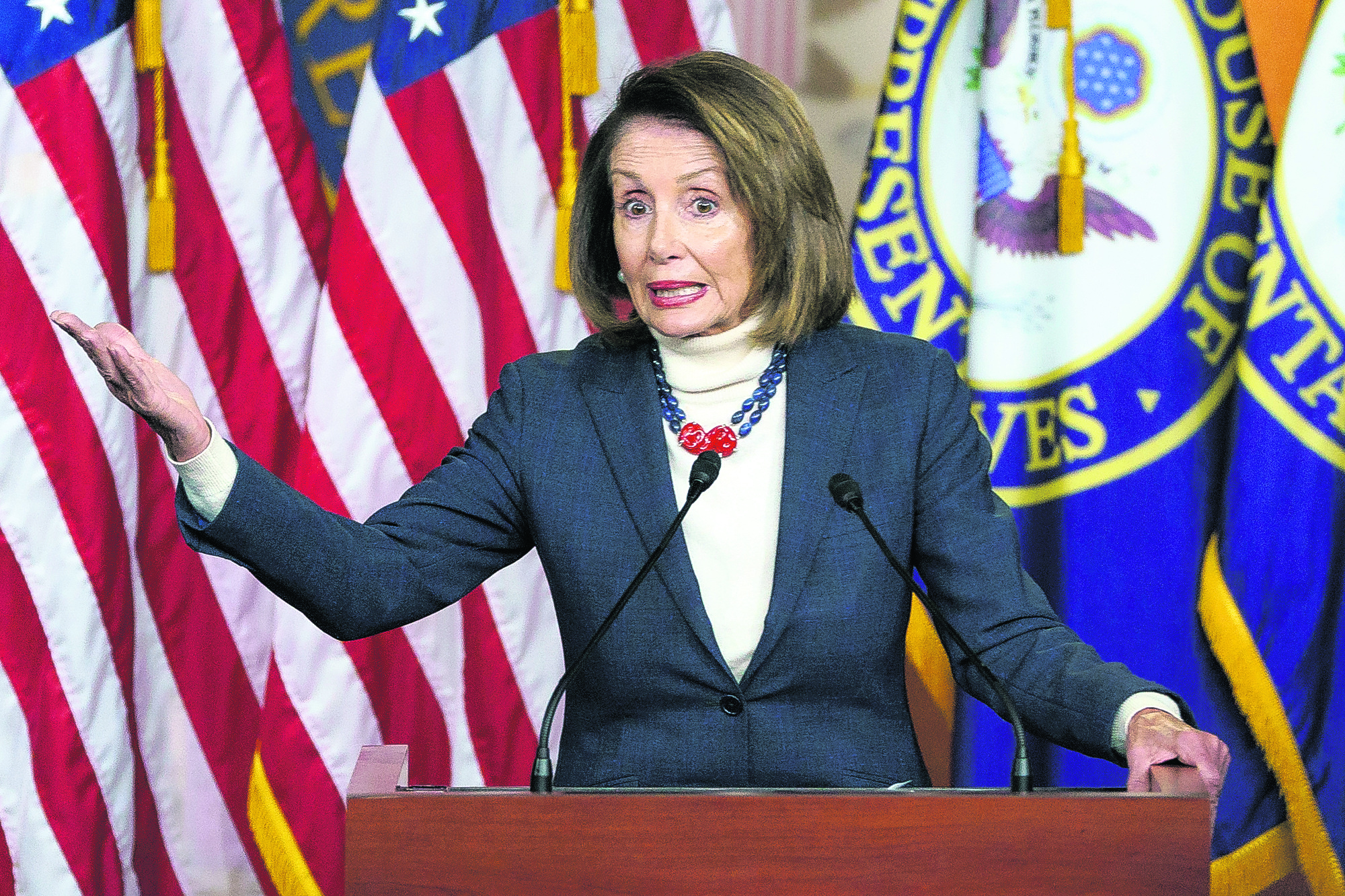
It took President Donald Trump one day to flex his executive power back at House Speaker Nancy Pelosi, denying her an aircraft to visit troops abroad in apparent response to her attempt to delay his State of Union address.
The nation’s two most powerful leaders appeared to be engaged in a game of constitutional one-upmanship as negotiations to end the monthlong partial government shutdown failed to produce results.
In a letter to Pelosi on Thursday, Trump said the shutdown would have to delay her trip, which was to begin Thursday. “In light of the 800,000 great American workers not receiving pay, I’m sure you would agree that postponing this public relations event is totally appropriate,” he said.
Pelosi spokesman Drew Hammill said she planned to travel to Afghanistan and Brussels to thank service members and obtain briefings on national security and intelligence “from those on the front lines.” He noted Trump had traveled to Iraq during the shutdown and said a Republican-led congressional trip also had taken place.
The political tit-for-tat between Trump and Pelosi underscored the tension between the two leaders, both playing to their core supporters as they battle over the president’s demand for money to build a U.S.-Mexico border wall. The sparring took place as hundreds of thousands of federal workers go without pay and Washington’s routine protocols — a president’s speech to Congress, a lawmaker’s official trip — become inflamed from the budget fight.
Pelosi would normally make such a trip on a military aircraft supplied by the Pentagon. According to a defense official, Pelosi did request Defense Department support for overseas travel and it was initially approved. The official wasn’t authorized to speak by name about the matter, so spoke on condition of anonymity.
The official said the president does have the authority to cancel the use of military aircraft. White House spokeswoman Sarah Huckabee Sanders said Trump wanted Pelosi to stay in Washington before Tuesday, a deadline to prepare the next round of paychecks for federal workers. “We want to keep her in Washington,” Sanders said. “The president wants her here to negotiate.” Trump’s move to ground the speaker came after Pelosi threatened Trump’s planned Jan. 29 State of the Union address, saying the shutdown raised concerns about whether the forum could have adequate security. Republicans said she was merely trying to deny the president the stage. While Pelosi did not immediately respond to being denied her trip, the No. 2 Democrat in the House, Rep. Steny Hoyer, called Trump’s action “petty. It is small. It is vindictive.”
Some Republicans also expressed frustration. Republican Sen. Lindsey Graham tweeted: “One sophomoric response does not deserve another.” He called Pelosi’s State of the Union move “very irresponsible and blatantly political” but said Trump’s effort was “also inappropriate.”
Trump has still not said how he will handle Pelosi’s attempt to have him postpone his State of the Union address until the government is reopened so workers can be paid for providing security for the grand Washington tradition.
Pelosi told reporters earlier Thursday: “Let’s get a date when government is open. Let’s pay the employees. Maybe he thinks it’s OK not to pay people who do work. I don’t.” Trump declined to address the stalemate over the speech Thursday during a visit to the Pentagon, simply promising that the nation will have “powerful, strong border security.” Pelosi reiterated she is willing to negotiate money for border security once the government is reopened, but she said Democrats remain opposed to Trump’s long-promised wall. “I’m not for a wall,” Pelosi said twice, mouthing the statement a third time for effect.
While the shutdown dragged on, the State Department instructed all U.S. diplomats in Washington and elsewhere to return to work next week with pay, saying it had found money for their salaries at least temporarily. In a notice to staff, the department said it can pay most of its employees beginning Sunday or Monday for their next pay period. They will not be paid for time worked since the shutdown began in December until the situation is resolved, said the notice.
Secretary of State Mike Pompeo had raised eyebrows among the U.S. diplomatic corps last week when he proclaimed that morale at the State Department was “good” despite the shutdown and the fact that 40 percent of its employees in the U.S. and nearly 23 percent overseas had been furloughed and the rest were working without pay.q



















